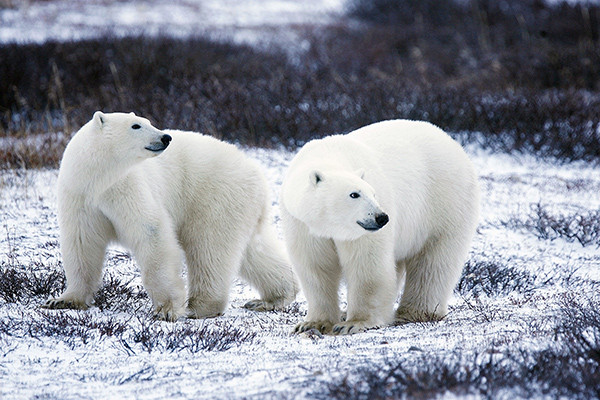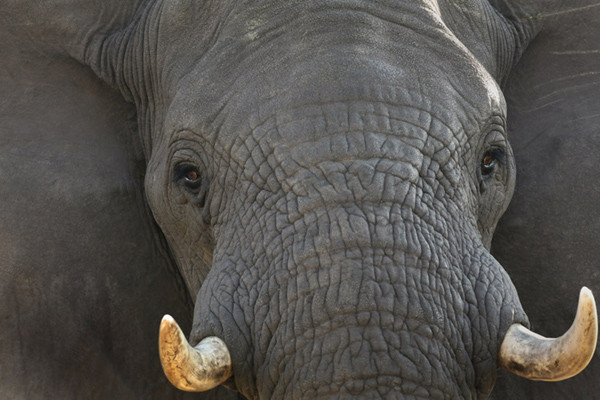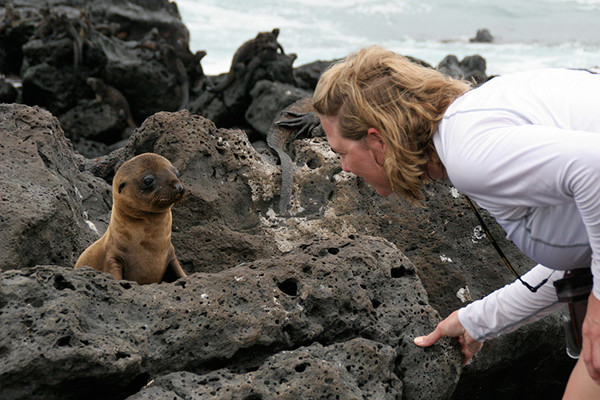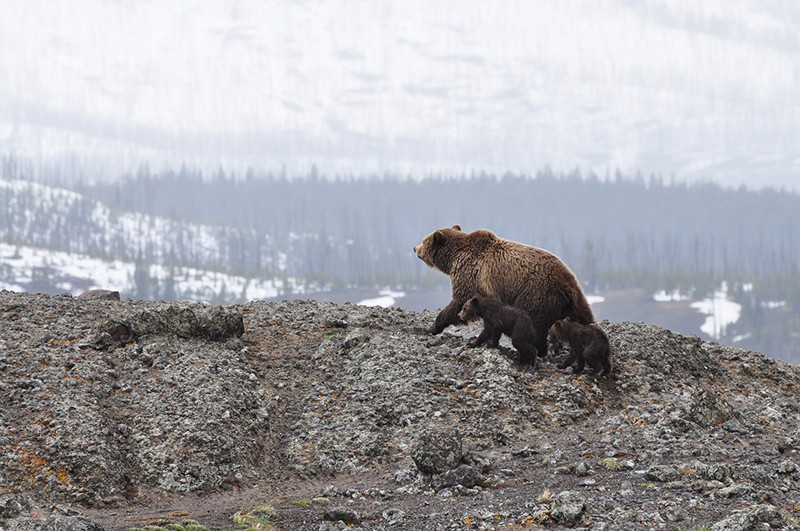Tourism’s impact on extinction is significant; it can both accelerate species decline and promote conservation efforts, especially in Vietnam. SIXT.VN offers sustainable travel options to minimize negative impacts and support local conservation initiatives, allowing you to experience Vietnam’s beauty responsibly while contributing to wildlife preservation and habitat protection. Embrace eco-tourism, responsible travel.
1. What is Extinction Tourism and How Does It Relate to Travel in Vietnam?
Extinction tourism, also known as “last chance tourism,” involves traveling to destinations to witness endangered species or natural wonders before they disappear, and it is related to travel in Vietnam because Vietnam is home to a range of unique and threatened wildlife and habitats. This form of travel can highlight the urgent need for conservation, but it may also increase the pressure on vulnerable species and habitats; therefore, sustainable tourism practices are essential. According to the Vietnam National Administration of Tourism, sustainable tourism is a key focus for the country’s development.
- Unique Biodiversity: Vietnam boasts diverse ecosystems, from lush rainforests to coastal wetlands, harboring numerous endemic and endangered species.
- Conservation Challenges: Rapid economic development, habitat loss, and illegal wildlife trade pose significant threats to Vietnam’s biodiversity.
- Sustainable Tourism: Balancing tourism growth with conservation efforts is crucial to protecting Vietnam’s natural heritage.
2. What are the Potential Negative Impacts of Tourism on Extinction?
Tourism can accelerate extinction through habitat destruction, pollution, disturbance of wildlife, and the introduction of invasive species, especially in fragile ecosystems like those found in many parts of Vietnam. Unsustainable tourism practices can undermine conservation efforts and place further pressure on already threatened species.
- Habitat Degradation: The development of tourist infrastructure, such as hotels and resorts, often leads to the destruction of natural habitats crucial for wildlife survival.
- Pollution: Increased tourism can result in higher levels of pollution, including air, water, and noise pollution, which can negatively impact wildlife and their habitats.
- Wildlife Disturbance: Tourists can unintentionally disturb wildlife by getting too close, feeding them, or disrupting their natural behaviors, leading to stress and reduced reproductive success.
- Invasive Species: Tourists can inadvertently introduce invasive species to new areas, which can outcompete native species and disrupt ecosystems.
 Polar bears in their natural habitat
Polar bears in their natural habitat
3. Can Ecotourism Help Protect Endangered Species in Vietnam?
Ecotourism, when implemented responsibly, can provide economic incentives for conservation, raise awareness among travelers, and support local communities involved in protecting endangered species in Vietnam. According to a report by the International Ecotourism Society, ecotourism generates significant revenue for conservation projects worldwide. Ecotourism should prioritize minimizing environmental impact and maximizing benefits for local communities.
- Economic Incentives: Ecotourism can create jobs and generate income for local communities, providing them with a vested interest in protecting natural resources and wildlife.
- Awareness and Education: Ecotourism experiences can educate travelers about the importance of biodiversity conservation and inspire them to support conservation efforts.
- Community Involvement: Ecotourism projects that involve local communities in planning and management are more likely to be successful and sustainable.
- Sustainable Practices: Ecotourism operators should adopt sustainable practices, such as reducing waste, conserving water and energy, and minimizing disturbance to wildlife.
4. What Role Does Sustainable Travel Play in Mitigating Tourism’s Impact on Extinction?
Sustainable travel minimizes negative impacts on the environment and local communities, promoting responsible tourism practices that support conservation efforts. Sustainable travel can involve choosing eco-friendly accommodations, respecting local cultures, and supporting businesses committed to environmental stewardship. According to the United Nations World Tourism Organization (UNWTO), sustainable tourism is essential for achieving the Sustainable Development Goals.
- Eco-Friendly Accommodations: Selecting accommodations that prioritize energy efficiency, waste reduction, and water conservation can significantly reduce the environmental impact of travel.
- Respect for Local Cultures: Engaging with local communities in a respectful and responsible manner can help preserve cultural heritage and support local economies.
- Support for Local Businesses: Choosing to patronize local businesses that are committed to sustainability can contribute to the economic well-being of communities and incentivize responsible practices.
- Responsible Tourism Practices: Adopting responsible tourism practices, such as minimizing waste, conserving water and energy, and respecting wildlife, can help mitigate the negative impacts of tourism.
5. How Can Travelers Make a Positive Impact on Conservation Efforts in Vietnam?
Travelers can support conservation in Vietnam by choosing responsible tour operators, participating in community-based tourism initiatives, and making donations to local conservation organizations. Furthermore, travelers can promote sustainable tourism practices among their peers and encourage others to travel responsibly. The World Wildlife Fund (WWF) emphasizes the importance of individual actions in achieving global conservation goals.
- Responsible Tour Operators: Selecting tour operators that prioritize sustainability, conservation, and community involvement can ensure that tourism benefits local communities and minimizes environmental impact.
- Community-Based Tourism: Participating in community-based tourism initiatives can provide economic opportunities for local communities and support conservation efforts.
- Donations to Conservation Organizations: Making donations to local conservation organizations can help fund important research, habitat protection, and anti-poaching efforts.
- Promoting Sustainable Tourism: Sharing experiences and knowledge about sustainable tourism practices can inspire others to travel responsibly and support conservation efforts.
6. What are Some Examples of Endangered Species in Vietnam Affected by Tourism?
Several endangered species in Vietnam, including the Saola, the Red-shanked Douc, and various turtle species, are affected by tourism through habitat loss, disturbance, and illegal wildlife trade. Conservation efforts are crucial to protect these species and their habitats from the negative impacts of tourism. According to the International Union for Conservation of Nature (IUCN), many of Vietnam’s endangered species face increasing threats from human activities.
- Saola: This critically endangered forest-dwelling bovid is threatened by habitat loss and hunting, exacerbated by tourism development in its range.
- Red-shanked Douc: This colorful primate is affected by habitat destruction and illegal wildlife trade, driven in part by tourism demand for exotic pets and souvenirs.
- Turtle Species: Sea turtles and freshwater turtles are vulnerable to habitat loss, pollution, and poaching, with tourism activities contributing to these threats in coastal areas.
 African elephant in its natural habitat
African elephant in its natural habitat
7. What Specific Actions Can SIXT.VN Take to Promote Responsible Tourism in Vietnam?
SIXT.VN can promote responsible tourism by partnering with eco-certified accommodations, offering sustainable tour options, educating travelers about responsible travel practices, and supporting local conservation initiatives. SIXT.VN can also work with local communities to develop tourism products that benefit both the environment and local economies. The Tourism Authority of Thailand has implemented similar strategies to promote sustainable tourism in Thailand.
- Eco-Certified Accommodations: Partnering with accommodations that have earned eco-certification can ensure that travelers are supporting businesses committed to environmental sustainability.
- Sustainable Tour Options: Offering tour options that prioritize responsible practices, such as minimizing environmental impact and supporting local communities, can help travelers make informed choices.
- Education for Travelers: Providing travelers with information about responsible travel practices, such as respecting local cultures and minimizing waste, can empower them to make a positive impact.
- Support for Local Initiatives: Supporting local conservation initiatives can contribute to the protection of endangered species and their habitats.
8. How Can SIXT.VN Help Travelers Find Eco-Friendly Accommodations and Tours in Vietnam?
SIXT.VN can curate a selection of eco-friendly accommodations and tours by partnering with certified sustainable businesses, providing detailed information about their sustainability practices, and offering customer reviews and ratings based on sustainability criteria. Transparent information empowers travelers to make informed choices and support businesses committed to responsible tourism. Booking.com has implemented similar features to promote sustainable accommodations worldwide.
- Certified Sustainable Businesses: Partnering with businesses that have earned certification from recognized sustainability organizations can provide travelers with assurance of their commitment to responsible practices.
- Detailed Information: Providing detailed information about the sustainability practices of accommodations and tour operators can help travelers make informed choices based on their values.
- Customer Reviews and Ratings: Offering customer reviews and ratings based on sustainability criteria can provide travelers with valuable insights into the performance of businesses in terms of environmental and social responsibility.
9. What are the Best Practices for Wildlife Viewing in Vietnam to Minimize Disturbance?
Best practices for wildlife viewing include maintaining a safe distance from animals, avoiding feeding them, refraining from using flash photography, and respecting their natural behaviors. Travelers should also follow the guidelines provided by tour operators and park authorities to minimize disturbance to wildlife. The Leave No Trace principles provide a comprehensive framework for responsible outdoor recreation.
- Safe Distance: Maintaining a safe distance from animals is essential to avoid disturbing their natural behaviors and causing them stress.
- Avoid Feeding: Feeding wild animals can alter their natural diets and behaviors, making them dependent on humans and increasing their vulnerability to disease.
- No Flash Photography: Using flash photography can startle or disorient wildlife, especially nocturnal animals.
- Respect Natural Behaviors: Observing wildlife without interfering with their natural behaviors, such as hunting or nesting, is crucial for their well-being.
 Tourist taking selfie with a baby seal in the Galapagos
Tourist taking selfie with a baby seal in the Galapagos
10. How Can Travelers Contribute to Habitat Protection and Restoration in Vietnam?
Travelers can support habitat protection and restoration by participating in reforestation projects, volunteering for conservation organizations, and advocating for sustainable land-use policies. Supporting local communities that are actively involved in conservation efforts can also contribute to habitat preservation. The Nature Conservancy engages in habitat protection and restoration projects around the world.
- Reforestation Projects: Participating in reforestation projects can help restore degraded habitats and create corridors for wildlife movement.
- Volunteering: Volunteering for conservation organizations can provide hands-on support for habitat protection and restoration efforts.
- Advocacy: Advocating for sustainable land-use policies can help prevent habitat loss and promote responsible development.
- Support Local Communities: Supporting local communities that are actively involved in conservation efforts can contribute to habitat preservation and sustainable livelihoods.
11. What are the Potential Long-Term Consequences if Tourism Continues to Negatively Impact Endangered Species in Vietnam?
If tourism continues to negatively impact endangered species, Vietnam risks losing its unique biodiversity, damaging its reputation as a sustainable tourism destination, and undermining the livelihoods of communities that depend on natural resources. Conservation efforts and responsible tourism practices are essential to prevent these negative consequences. The Economics of Ecosystems and Biodiversity (TEEB) initiative highlights the economic value of biodiversity and the costs of its loss.
- Loss of Biodiversity: Continued negative impacts on endangered species can lead to their extinction, resulting in the loss of Vietnam’s unique biodiversity and ecological heritage.
- Damage to Reputation: A decline in endangered species and degradation of natural habitats can damage Vietnam’s reputation as a sustainable tourism destination, affecting its ability to attract responsible travelers.
- Economic Impacts: Loss of biodiversity can undermine the livelihoods of communities that depend on natural resources for tourism, fishing, and agriculture.
12. What Educational Resources Can Help Travelers Learn About Responsible Tourism in Vietnam?
Educational resources such as guidebooks, websites, and workshops can provide travelers with valuable information about responsible tourism practices, local cultures, and conservation efforts in Vietnam. Organizations like UNESCO and the Global Sustainable Tourism Council (GSTC) offer resources and guidelines for sustainable tourism.
- Guidebooks: Responsible travel guidebooks can provide travelers with practical tips and information about sustainable accommodations, tours, and activities.
- Websites: Websites of conservation organizations and sustainable tourism initiatives can offer valuable information about local cultures, conservation efforts, and responsible travel practices.
- Workshops: Workshops and seminars on responsible tourism can provide travelers with in-depth knowledge and skills for minimizing their environmental and social impact.
13. What Policies and Regulations are in Place in Vietnam to Protect Endangered Species from Tourism?
Vietnam has implemented policies and regulations to protect endangered species, including wildlife protection laws, protected areas, and tourism regulations. However, enforcement of these policies can be challenging, and further efforts are needed to ensure effective protection of endangered species from the impacts of tourism. The Convention on Biological Diversity (CBD) provides a framework for national and international efforts to conserve biodiversity.
- Wildlife Protection Laws: Vietnam’s wildlife protection laws prohibit hunting, trade, and possession of endangered species and impose penalties for violations.
- Protected Areas: Vietnam has established a network of national parks, nature reserves, and other protected areas to conserve biodiversity and provide habitat for endangered species.
- Tourism Regulations: Vietnam’s tourism regulations aim to minimize the environmental and social impacts of tourism activities, including restrictions on development in sensitive areas and guidelines for responsible wildlife viewing.
14. How Can Local Communities Benefit from Responsible Tourism While Protecting Endangered Species?
Responsible tourism can provide local communities with economic opportunities, promote cultural preservation, and empower them to participate in conservation efforts. Community-based tourism initiatives can generate income, create jobs, and support sustainable livelihoods, while also fostering a sense of stewardship for natural resources. The World Bank supports community-based natural resource management projects around the world.
- Economic Opportunities: Responsible tourism can create jobs and generate income for local communities through tourism-related activities, such as guiding, hospitality, and handicraft production.
- Cultural Preservation: Responsible tourism can promote cultural preservation by encouraging travelers to respect local customs, traditions, and heritage sites.
- Community Empowerment: Responsible tourism can empower local communities to participate in conservation efforts by providing them with the resources, knowledge, and skills they need to protect natural resources and manage tourism activities sustainably.
 African wild dog in its natural habitat
African wild dog in its natural habitat
15. What are the Emerging Trends in Sustainable Tourism that Can Benefit Endangered Species Conservation in Vietnam?
Emerging trends in sustainable tourism include regenerative tourism, community-led conservation, and technology-driven solutions. Regenerative tourism focuses on restoring and enhancing ecosystems and communities, while community-led conservation empowers local people to manage and protect natural resources. Technology-driven solutions, such as wildlife monitoring apps and virtual reality experiences, can enhance conservation efforts and promote responsible tourism practices. The Adventure Travel Trade Association (ATTA) promotes sustainable tourism and supports its members in adopting responsible practices.
- Regenerative Tourism: Regenerative tourism goes beyond sustainability by focusing on restoring and enhancing ecosystems and communities through tourism activities.
- Community-Led Conservation: Community-led conservation empowers local communities to manage and protect natural resources by providing them with the resources, knowledge, and skills they need to conserve biodiversity and promote sustainable livelihoods.
- Technology-Driven Solutions: Technology-driven solutions, such as wildlife monitoring apps, virtual reality experiences, and data analytics, can enhance conservation efforts, promote responsible tourism practices, and provide travelers with immersive and educational experiences.
16. How Does Climate Change Exacerbate the Impact of Tourism on Extinction?
Climate change exacerbates the impact of tourism by altering habitats, increasing the frequency of extreme weather events, and disrupting ecosystems. These changes can further threaten endangered species and make them more vulnerable to the negative impacts of tourism. The Intergovernmental Panel on Climate Change (IPCC) provides comprehensive assessments of climate change and its impacts.
- Habitat Alteration: Climate change can alter habitats by causing sea-level rise, desertification, and changes in temperature and precipitation patterns, making them less suitable for endangered species.
- Extreme Weather Events: Climate change can increase the frequency and intensity of extreme weather events, such as hurricanes, floods, and droughts, which can damage habitats and disrupt ecosystems.
- Ecosystem Disruption: Climate change can disrupt ecosystems by altering species distributions, increasing the risk of invasive species, and causing declines in biodiversity.
17. What are the Key Performance Indicators (KPIs) for Measuring the Success of Sustainable Tourism Initiatives in Vietnam?
Key Performance Indicators (KPIs) for measuring the success of sustainable tourism initiatives include biodiversity conservation, community well-being, economic benefits, and environmental sustainability. Measuring these KPIs can help track progress, identify areas for improvement, and ensure that tourism is contributing to the long-term well-being of Vietnam’s natural and cultural resources. The Global Sustainable Tourism Council (GSTC) provides criteria and indicators for sustainable tourism.
- Biodiversity Conservation: KPIs for biodiversity conservation include the number of endangered species protected, the area of habitat restored, and the reduction in poaching and illegal wildlife trade.
- Community Well-Being: KPIs for community well-being include the number of jobs created, the income generated, and the improvement in access to education, health care, and other essential services.
- Economic Benefits: KPIs for economic benefits include the increase in tourism revenue, the diversification of local economies, and the development of sustainable livelihoods.
- Environmental Sustainability: KPIs for environmental sustainability include the reduction in carbon emissions, the conservation of water and energy, and the minimization of waste and pollution.
18. How Can Vietnam Balance Economic Development with the Need to Protect Endangered Species from Tourism?
Vietnam can balance economic development with the need to protect endangered species by implementing sustainable tourism policies, investing in conservation efforts, and promoting responsible business practices. Integrating biodiversity conservation into economic planning and decision-making can ensure that development benefits both people and nature. The United Nations Environment Programme (UNEP) promotes sustainable development and environmental protection.
- Sustainable Tourism Policies: Implementing sustainable tourism policies can help minimize the environmental and social impacts of tourism activities, while also promoting economic growth and community well-being.
- Investment in Conservation: Investing in conservation efforts, such as habitat protection, species recovery programs, and anti-poaching initiatives, can help protect endangered species and maintain biodiversity.
- Responsible Business Practices: Promoting responsible business practices, such as eco-certification, waste reduction, and community engagement, can help ensure that tourism businesses are contributing to sustainable development.
19. What Role Can Technology Play in Reducing the Negative Impacts of Tourism on Endangered Species?
Technology can play a crucial role in reducing the negative impacts of tourism through wildlife monitoring apps, virtual reality experiences, and data analytics. Wildlife monitoring apps can help track endangered species and prevent poaching, while virtual reality experiences can provide travelers with immersive and educational experiences without disturbing wildlife. Data analytics can help identify areas where tourism is having a negative impact and inform conservation efforts. The Wildlife Conservation Society (WCS) uses technology to monitor wildlife and combat poaching.
- Wildlife Monitoring Apps: Wildlife monitoring apps can help track endangered species, prevent poaching, and provide real-time information to conservation authorities.
- Virtual Reality Experiences: Virtual reality experiences can provide travelers with immersive and educational experiences without disturbing wildlife or damaging habitats.
- Data Analytics: Data analytics can help identify areas where tourism is having a negative impact on endangered species and inform conservation efforts by providing insights into visitor behavior, environmental conditions, and species distribution.
 Grizzly bear and cubs in their natural habitat
Grizzly bear and cubs in their natural habitat
20. What are Some Successful Examples of Sustainable Tourism Initiatives that have Protected Endangered Species in Other Countries?
Successful examples of sustainable tourism initiatives include the gorilla trekking program in Rwanda, the marine protected areas in the Galapagos Islands, and the community-based ecotourism projects in Costa Rica. These initiatives have demonstrated that tourism can be a powerful tool for conservation when implemented responsibly and with the involvement of local communities. The Conservation International (CI) supports conservation projects around the world.
- Gorilla Trekking in Rwanda: The gorilla trekking program in Rwanda has generated significant revenue for conservation and local communities, while also protecting endangered mountain gorillas.
- Marine Protected Areas in the Galapagos: The marine protected areas in the Galapagos Islands have helped protect endangered marine species, such as sea turtles, marine iguanas, and Galapagos penguins, while also supporting sustainable tourism.
- Community-Based Ecotourism in Costa Rica: Community-based ecotourism projects in Costa Rica have provided local communities with economic opportunities and empowered them to participate in conservation efforts, while also protecting endangered species, such as scarlet macaws and jaguars.
21. How Can SIXT.VN Ensure That Its Operations Align with the Principles of Sustainable Tourism and Contribute to Endangered Species Conservation?
SIXT.VN can ensure its operations align with sustainable tourism principles by adopting eco-certification, supporting local conservation organizations, and promoting responsible travel practices. Furthermore, SIXT.VN can measure its impact on endangered species and continuously improve its sustainability performance. The Travel Foundation provides guidance and resources for sustainable tourism businesses.
- Eco-Certification: Obtaining eco-certification from recognized organizations can provide assurance to travelers that SIXT.VN is committed to sustainable practices.
- Support Local Conservation: Supporting local conservation organizations through donations, partnerships, and volunteer programs can help protect endangered species and their habitats.
- Promote Responsible Travel: Promoting responsible travel practices through educational materials, tour itineraries, and customer service can empower travelers to minimize their environmental and social impact.
- Measure and Improve: Measuring its impact on endangered species through data collection and analysis can help SIXT.VN identify areas for improvement and track its progress toward sustainability goals.
22. What are the Ethical Considerations of Promoting Tourism to See Endangered Species?
Promoting tourism to see endangered species raises ethical considerations regarding the potential for disturbance, habitat degradation, and exploitation. Responsible tour operators should prioritize the well-being of the animals and their habitats, minimizing negative impacts and maximizing benefits for local communities. The International Ecotourism Society (TIES) promotes ethical and responsible ecotourism practices.
- Potential for Disturbance: Tourism activities can disturb endangered species, disrupting their natural behaviors and causing stress.
- Habitat Degradation: Tourism development can lead to habitat degradation, reducing the availability of food, water, and shelter for endangered species.
- Exploitation: Tourism can lead to the exploitation of endangered species for commercial gain, such as through illegal wildlife trade and unsustainable tourism practices.
23. How Can Travelers Advocate for Stronger Environmental Protections for Endangered Species in Vietnam?
Travelers can advocate for stronger environmental protections by supporting conservation organizations, contacting government officials, and raising awareness among their peers. Furthermore, travelers can use their purchasing power to support businesses that are committed to sustainable practices and advocate for responsible tourism policies. The Sierra Club is an environmental organization that advocates for stronger environmental protections.
- Support Conservation Organizations: Supporting conservation organizations through donations, volunteer work, and advocacy can help strengthen their ability to protect endangered species and their habitats.
- Contact Government Officials: Contacting government officials to express support for stronger environmental protections can influence policy decisions and promote responsible governance.
- Raise Awareness: Raising awareness among peers about the importance of environmental protection can inspire others to take action and support conservation efforts.
24. What is the Role of Education in Fostering a Sense of Responsibility Towards Endangered Species and Their Habitats?
Education plays a crucial role in fostering a sense of responsibility by increasing knowledge, promoting empathy, and inspiring action. Educational programs can teach people about the importance of biodiversity, the threats facing endangered species, and the actions they can take to protect them. The World Wildlife Fund (WWF) provides educational resources and programs for schools and communities.
- Increase Knowledge: Educational programs can provide people with the knowledge they need to understand the importance of biodiversity and the threats facing endangered species.
- Promote Empathy: Educational programs can promote empathy by helping people connect with endangered species and understand their unique characteristics and needs.
- Inspire Action: Educational programs can inspire action by empowering people to take concrete steps to protect endangered species and their habitats.
25. How Can Vietnam Position Itself as a Leader in Sustainable Tourism and Endangered Species Conservation?
Vietnam can position itself as a leader in sustainable tourism and endangered species conservation by implementing strong environmental policies, investing in conservation efforts, and promoting responsible tourism practices. Furthermore, Vietnam can collaborate with international organizations and other countries to share knowledge, exchange best practices, and address global challenges. The Global Sustainable Tourism Council (GSTC) provides criteria and indicators for sustainable tourism.
- Strong Environmental Policies: Implementing strong environmental policies can help protect endangered species and their habitats, while also promoting sustainable development.
- Investment in Conservation: Investing in conservation efforts can help restore degraded ecosystems, protect endangered species, and ensure the long-term sustainability of Vietnam’s natural resources.
- Promotion of Responsible Tourism: Promoting responsible tourism practices can help minimize the environmental and social impacts of tourism activities, while also promoting economic growth and community well-being.
SIXT.VN is dedicated to making your travel experience in Vietnam both enjoyable and sustainable. Contact us today via Hotline/Whatsapp: +84 986 244 358 or visit our website SIXT.VN at Address: 260 Cau Giay, Hanoi, Vietnam, to discover our eco-friendly tour options, secure your airport transfers, and book accommodations that share our commitment to preserving Vietnam’s natural beauty and safeguarding its endangered species.
FAQ About Tourism and Extinction
1. What exactly is extinction tourism?
Extinction tourism, also known as “last chance tourism,” involves visiting places or seeing species that are on the verge of disappearing, with the goal of experiencing them before they’re gone forever.
2. How does tourism contribute to the extinction of species?
Tourism can contribute to extinction through habitat destruction for infrastructure, pollution from increased waste and emissions, disturbance of wildlife, and the introduction of invasive species.
3. Can tourism ever be beneficial for endangered species?
Yes, responsible ecotourism can provide economic incentives for conservation, raise awareness among travelers, and support local communities involved in protecting endangered species.
4. What is sustainable tourism, and how does it help?
Sustainable tourism minimizes negative impacts on the environment and local communities, promoting responsible tourism practices that support conservation efforts and long-term well-being.
5. What can I do as a traveler to help protect endangered species?
Choose responsible tour operators, participate in community-based tourism, donate to conservation organizations, and promote sustainable tourism practices among your friends and family.
6. What are some examples of endangered species in Vietnam affected by tourism?
The Saola, the Red-shanked Douc, and various turtle species are all affected by tourism through habitat loss, disturbance, and illegal wildlife trade.
7. How can SIXT.VN help me travel more responsibly in Vietnam?
SIXT.VN offers eco-certified accommodations, sustainable tour options, educates travelers on responsible practices, and supports local conservation initiatives.
8. What are the best practices for viewing wildlife without disturbing them?
Maintain a safe distance, avoid feeding animals, refrain from using flash photography, and respect their natural behaviors.
9. How can I support habitat protection and restoration efforts in Vietnam?
Participate in reforestation projects, volunteer for conservation organizations, advocate for sustainable land-use policies, and support local communities involved in conservation.
10. How does climate change make the impact of tourism on extinction worse?
Climate change alters habitats, increases extreme weather events, and disrupts ecosystems, further threatening endangered species and making them more vulnerable to the negative impacts of tourism.



